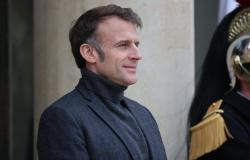Published11. December 2024, 12:01
Shot of Bashar al-Assad: For Trump, Syrians will have to “fend for themselves”
While the elected American president, Donald Trump, urges not to get involved in the Syrian “mess”, the administration of the outgoing president, Joe Biden, judges, on the contrary, that it is in the vital interests of the United States.
The United States, like the rest of the world, was taken by surprise by the lightning offensive by Syrian rebels, led by the radical Islamist group Hayat Tahrir al-Sham (HTS), which led in a few days to the overthrow of the president Syrian Bashar al-Assad, in a country undermined by more than a decade of civil war.
But the news forces the American government to urgently review its strategy, which, in recent years, unable to support a viable alternative to the Syrian leader, had largely disengaged to concentrate on the fight against the jihadist group. Islamic State (IS). In this context, the United States has around 900 soldiers in Syria.
Since the fall of Damascus, Washington has set two main lines of action: preventing any resurgence of ISIS – the Pentagon carried out strikes against the group’s targets on Sunday – and trying to influence the political transition in Syria. , calling for an “inclusive, non-sectarian” process, as Secretary of State Antony Blinken did on Tuesday. He said the United States “will fully recognize and support the future Syrian government resulting from this process.”
Antony Blinken will travel to Türkiye, which is very involved in Syria, on Friday to discuss the situation in the country, an official Turkish source said on Wednesday. U.S. officials are for now muting the fact that the United States considers HTS, once linked to al-Qaeda, a “terrorist” group and stressing that at this point the group is “using the right words.”
What was Trump?
But on Saturday, on the eve of the announcement of Assad’s fall, Donald Trump called above all not to “meddle” in Syria, judging, to summarize, that the United States had nothing to do it. He said the same thing again in an interview with the French magazine Paris Match published Wednesday: “There are a lot of crises in the world. In recent days, we have had news in Syria. They will have to fend for themselves, because we are not involved there and neither is France.”
Donald Trump will take office on January 20. During his first term, from 2017 to 2021, he attempted to withdraw American troops from Syria, before abandoning it under international pressure. “It remains to be seen whether, during his second term, he will withdraw some or all of these forces,” says Brian Finucane of the International Crisis Group. For Steven Cook of the Council on Foreign Relations, the United States must address real concerns about ISIS, but “in terms of getting involved in shaping Syria’s politics, I think ‘There’s nothing good to come from it.’
John Turner, professor of history at Colby College, believes, however, that “if the United States stays on the sidelines and does not defend its interests (…), we run the risk of repeating what happened during of the fall of the communist regime in Afghanistan in the early 1990s”, with the coming to power of the Taliban who then served as a refuge for Al-Qaeda. “A similar outcome in Syria, much more strategically important, would be disastrous for our long-term interests,” he emphasizes.
Limited room for maneuver
Still, the United States’ room for maneuver seems limited, beyond “expressing their interest in helping to influence the course of events”, judges Colin Clarke, research director at the Soufan Group. But he thinks that “the Trump administration must arrive from day one with a coherent Syria policy and start working with the other actors there, mainly the Turks.”
As for relations with HTS, Robert Ford, the last American ambassador to Syria, argues that the group has moderated and that the statements of the leader of the Syrian rebels, Abu Mohammad al-Jolani, are going in the right direction. “I’m not saying you should trust Jolani. He is clearly authoritarian. He is clearly an Islamist who does not believe that Christians have the same right to power as Muslims. But I’m sure I want to test it on some of these things,” he says.
According to him, the United States should encourage the HTS and other Syrian actors to reach out and reassure the country’s diverse communities, including Christians, Kurds and Alawites, from which Bashar al-Assad comes. Beyond that, Washington should step back and let the Syrians sort out their future, he says.
(afp/er)






